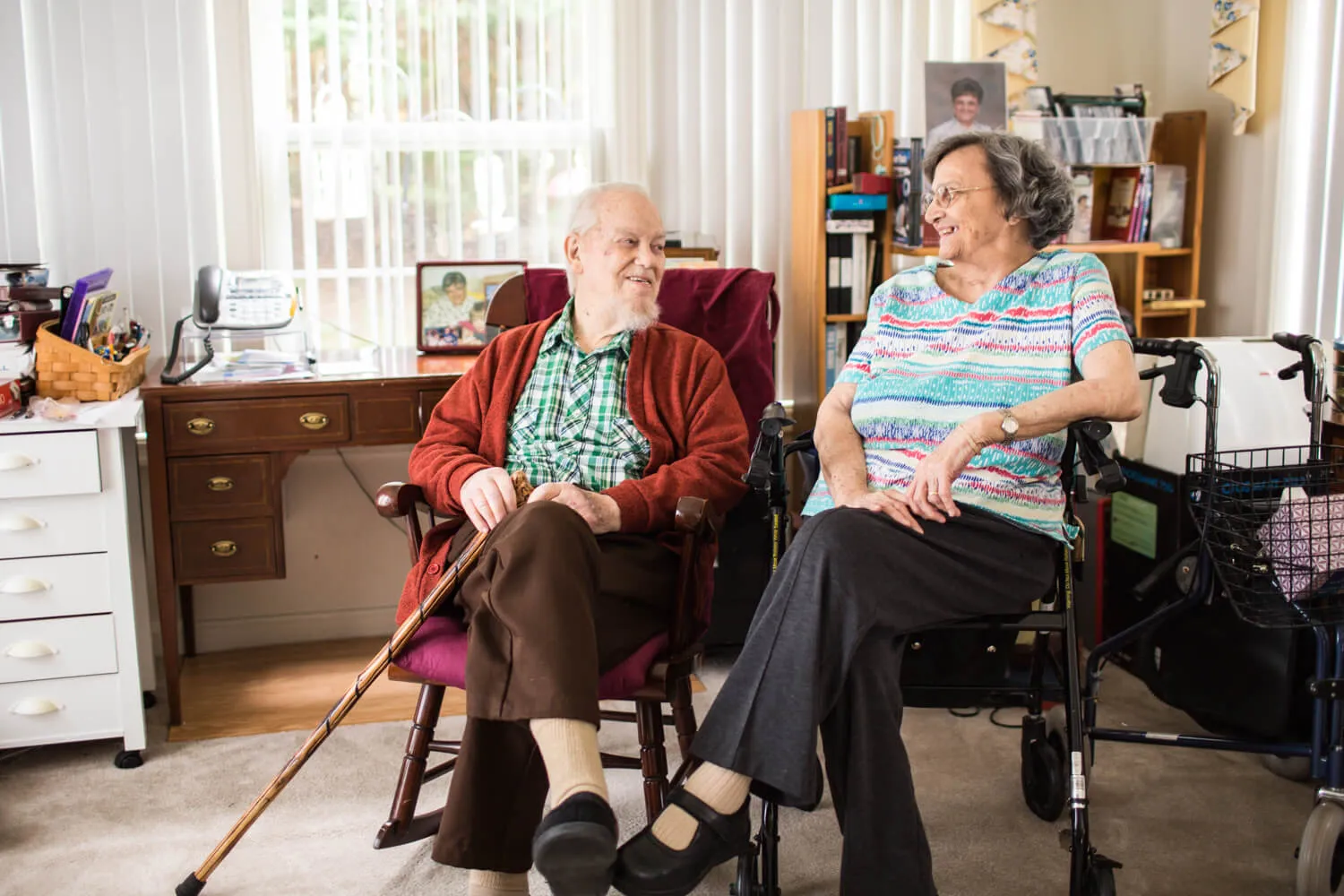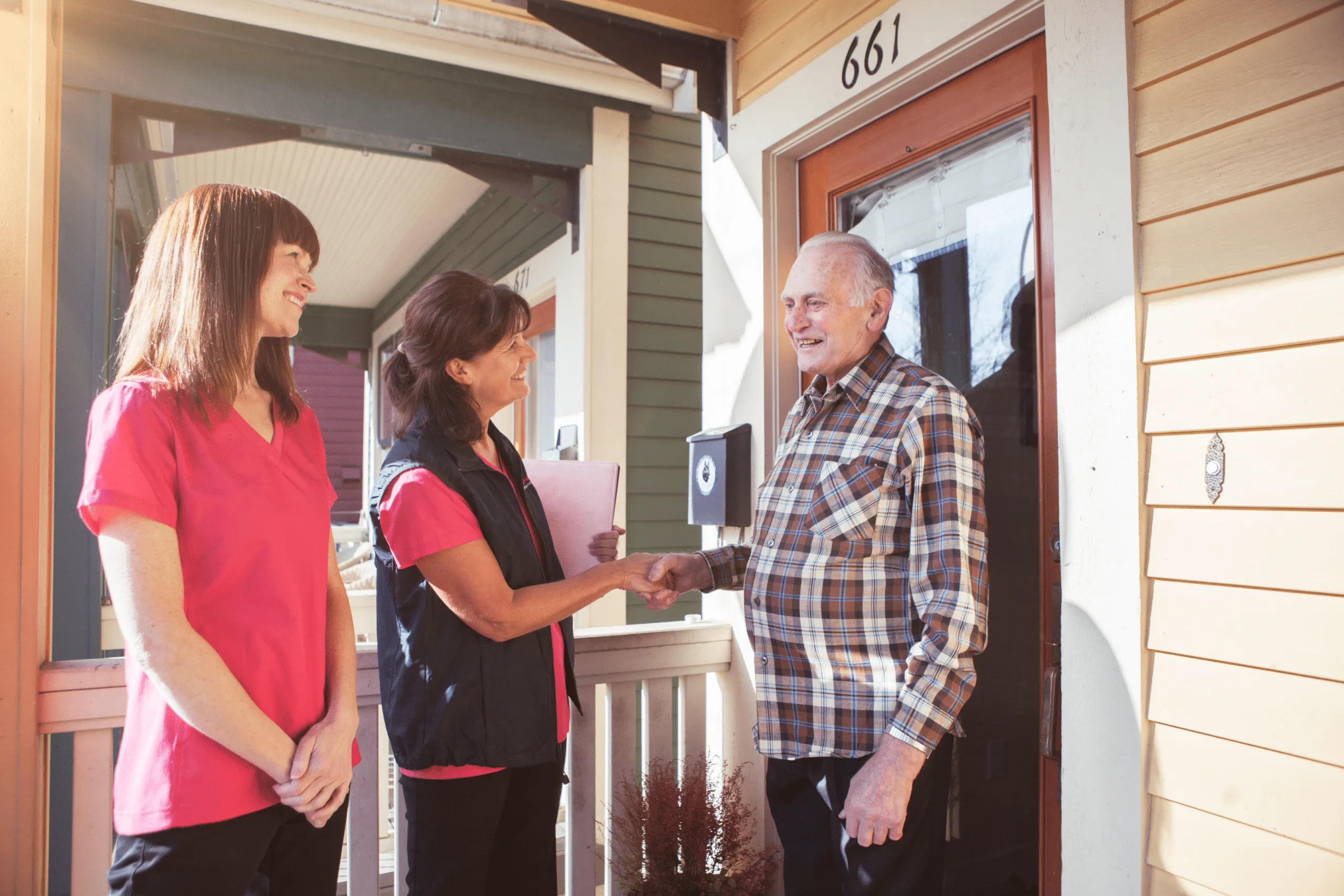Going under the surgeon's knife is stressful at any age, but it brings extra risks for loved ones in their senior years. As we get older, the challenges of post-surgery recovery only increase. The reality is patients usually take longer to heal as they age and may require more support to recover. On top of that, the loss of mobility that often accompanies surgeries can be a big psychological blow to someone used to their freedom. Helping your loved one get back on their feet requires patience, organization, and planning. If you're helping a senior recover at home after surgery, read on.
Talk to their senior health care team
The first thing you need to do is talk to your loved one's medical team. They'll have the knowledge and expertise to shed light on the entire pre and post-surgery process. Ask them to explain in detail what your loved one will need for a successful recovery.Medication list: Take down a list of the medication your loved one will need during their post-surgery recovery and pre-fill their prescriptions beforehand. This will ensure they have their medication on hand when they return home. Don't forget to ask their medical care team about any over-the-counter medicine that might help with post-surgery symptoms.Emergency contact: It's a good idea to get the contact details of your loved one's care team and make a few copies to give to other relatives or friends. Their care team should also have the contact details of immediate family or friends in case of an emergency.Once you know what your loved one's recovery plan requires, feel free to ask anything else about enhancing their care. Questions could include:
- How long will post-surgery recovery take?
- How should your loved one care for their incision?
- How much or little physical activity should your loved one do?
- What should your loved one eat to speed up recovery?
- What behaviours should be avoided during recovery?
[caption id="attachment_4660" align="aligncenter" width="724"]

Caregiver helping disabled lady get into the car[/caption]
Prepare their home for their return
In most cases, seniors can recover from surgery in the comfort of their own home. But there are a few ways to make the experience even better for your loved one. Before the procedure, assess your loved one's living environment and take note of anything that could obstruct their movement through their home. Keep safety in mind: After surgery, your loved one may not be able to get around their home as easily as they're used to. Look for ways to make their home as safe as possible. This could include moving their bed closer to their bathroom, taking away heavy furniture they could bump into, or making sure their medication is easily accessible.Plan food choices ahead of time: Surgery can be taxing on aging bodies so you'll need to make sure your loved one is well-nourished. By preparing easy-to-freeze meals ahead of time, your loved one can avoid the stress of having to cook post-surgery. Plus, by making the meals yourself, you can ensure they're nutritious and well-balanced. Don't forget water! Keeping seniors hydrated after surgery is important.Assess their wardrobe: After surgery, your loved one won't want to feel constrained by clothing that's tight or restrictive—especially around their incisions. To ensure their comfort, look for loose clothing that won't rub or chafe when they move. The same goes for footwear. A comfortable slip-on shoe is going to make your loved one's recovery much easier than a lace-up boot.
Take care of their mental health
Surgery can take a physical toll, especially if you're older or have existing health conditions. But the mental health challenges surgery can bring are rarely discussed. Make sure your loved one has the support they need to feel calm and in control. Provide entertainment: This could mean replacing their usual physical activities with gentler alternatives like board games, podcasts, or even a good book. You could visit them more frequently and have longer conversations while you're there—anything you can think of to help them feel less isolated and more mentally stimulated.Ease feelings of guilt: Sometimes people can experience feelings of guilt after a surgical procedure. Often, this is because they're not used to having to depend on someone else for their care. Try talking to your loved one and reassuring them you've chosen to help and support them after surgery. Or consider finding professional support. Caregiving services can help your loved one feel like they're not a burden to you personally, while still receiving the care they need.
Find them high-quality home nursing support
There's a lot to consider when planning a senior's recovery at home after surgery. Your loved one may need help with their day-to-day activities like bathing, cooking, cleaning, and moving around. Not to mention, follow-up doctor appointments, pharmacy runs, and making sure they're eating well and taking the right medications at the right times.This can be overwhelming, especially if you have to squeeze it into an already hectic schedule. To make things easier on yourself and your loved one, consider hiring in-home nursing care.Nurse Next Door goes the extra mile to make sure your loved one is matched with their ideal caregiver. Home nurses are trained to provide the high-quality post-operative care your loved one needs so you never have to worry about a thing.From scheduled nursing visits to hourly care, they'll be able to assist your loved one with:
- Medication distribution and monitoring
- Personal hygiene needs
- Transportation to and from appointments
- Every-day tasks like cooking and folding laundry
You'll also be paired with a professional care manager who handles communication between your loved one's care team and healthcare providers. This is designed to reduce stress and administrative headaches for you and your loved one so you can focus on their recovery.


























